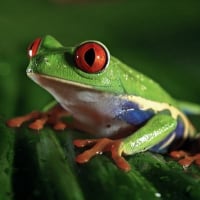How much energy to freeze 40 pounds of water?
softdown
Solar Expert Posts: 4,062 ✭✭✭✭
I'm thinking - a lot. Put a case of 16 ounce water bottles in an old chest freezer. It seemed to run 24/7 for 3 days.
I suspect this 12 year old freezer may have lost efficiency. About ready for retirement. Thought I would ask what is normal to expect.
My Denver side by side freezes multiple gallons of milk in 24 hours but I think it is, more or less, a commercial unit with large compressor.
I suspect this 12 year old freezer may have lost efficiency. About ready for retirement. Thought I would ask what is normal to expect.
My Denver side by side freezes multiple gallons of milk in 24 hours but I think it is, more or less, a commercial unit with large compressor.
First Bank:16 180 watt Grape Solar with FM80 controller and 3648 Inverter....Fullriver 8D AGM solar batteries. Second Bank/MacGyver Special: 10 165(?) watt BP Solar with Renogy MPPT 40A controller/ and Xantrex C-35 PWM controller/ and Morningstar PWM controller...Cotek 24V PSW inverter....forklift and diesel locomotive batteries
Comments
-
Your title question is totally different then your verbage question.
enthalpy of water is 333.5 Joules/gram That just takes 0 deg liquid to 0 deg solid. (phase change from liquid to solid)
40 lbs (4.8 gallons) of water is 18.14 kgs. 18,140 gms * 333.5 Joules/gm = 6,049,690 Joules ( 6 million joules / 3.600 joules/kWH = 1.68 kWH)
So to freeze 40 lbs of water from just above freezing liquid to just below freezing solid takes 1.68 kWH of energy (or 6 million Joules)
Energy transfer to take water from a given temp to near freezing liquid is 1 BTU to drop 1 pound of water by 1 deg F.
If you start at 70 deg F it takes 70 degsF-32degs F delta temp * 40 lbs = 1,520 BTU's of heat removed from water.
1kWH = 3,413 BTU's
1,520 BTU's / 3,413 BTU per kWH = 0.45 kWH to take water from 70 degs F to 32 degs F.
Total to take 40 lbs. from 70 degs F to just below freezing is 1.68 kWH + 0.45 kWH = 2.13 kWH (7270 BTU's). This is 100% efficiency.
You can see it is dominated by phase change from water to ice.
Do not relate kWH's of energy transfer to electrical energy used by freezer. Refrigeration is a heat pump not a heater. This is why a hybrid heat pump water heater is more efficient then a normal electrical heating element water heater.
That is your title question.
The verbage part is dependent on a lot of unspecified things. If you can find out the BTU capacity of your freezer you can get close.. It depends on outside temp and heat absorbed from freezer walls. Likely in range of 200 to 500 BTU for freezer depending on its size.
If it yields 300 BTU/hr ( and you don't open freezer) would take (7,270 BTU/300 BTU/hr) about 24.2 hours starting with 70 deg F water.
Make sure freezer condenser coils are not clogged with dust, its fan is working, and unit internal defroster is working. Some old freezers do not have defrosters and you just have to empty out and wait until ice on evaporator coil melts. -
12 years old - I would imagine there is dust, It should not have taken 3 days to reach 0F. I would also imagine that freezers get weaker and less efficient over the years.
Hopefully I can just tip it and see any dust problem.First Bank:16 180 watt Grape Solar with FM80 controller and 3648 Inverter....Fullriver 8D AGM solar batteries. Second Bank/MacGyver Special: 10 165(?) watt BP Solar with Renogy MPPT 40A controller/ and Xantrex C-35 PWM controller/ and Morningstar PWM controller...Cotek 24V PSW inverter....forklift and diesel locomotive batteries -
I would guess (from looking a ice makers), that you are looking at ~12 to 25 lbs of ice per day at best with standard compressor (water is about 8.3 lbs per gallon).
-BillNear San Francisco California: 3.5kWatt Grid Tied Solar power system+small backup genset -
I'd do a few comparisons, preferably with the same ambient temperature conditions. Measure watts (or kwh/day) of the freezer in steady state and then do the same while freezing a known amount of water. From this data, you can get an approximate efficiency.
Time to freeze a certain amount of water may mean nothing about efficiency.I am available for custom hardware/firmware development
Categories
- All Categories
- 233 Forum & Website
- 141 Solar Forum News and Announcements
- 1.4K Solar News, Reviews, & Product Announcements
- 200 Solar Information links & sources, event announcements
- 901 Solar Product Reviews & Opinions
- 256 Solar Skeptics, Hype, & Scams Corner
- 22.5K Solar Electric Power, Wind Power & Balance of System
- 3.5K General Solar Power Topics
- 6.7K Solar Beginners Corner
- 1K PV Installers Forum - NEC, Wiring, Installation
- 2.1K Advanced Solar Electric Technical Forum
- 5.6K Off Grid Solar & Battery Systems
- 430 Caravan, Recreational Vehicle, and Marine Power Systems
- 1.1K Grid Tie and Grid Interactive Systems
- 656 Solar Water Pumping
- 817 Wind Power Generation
- 624 Energy Use & Conservation
- 624 Discussion Forums/Café
- 316 In the Weeds--Member's Choice
- 75 Construction
- 125 New Battery Technologies
- 108 Old Battery Tech Discussions
- 3.8K Solar News - Automatic Feed
- 3.8K Solar Energy News RSS Feed
